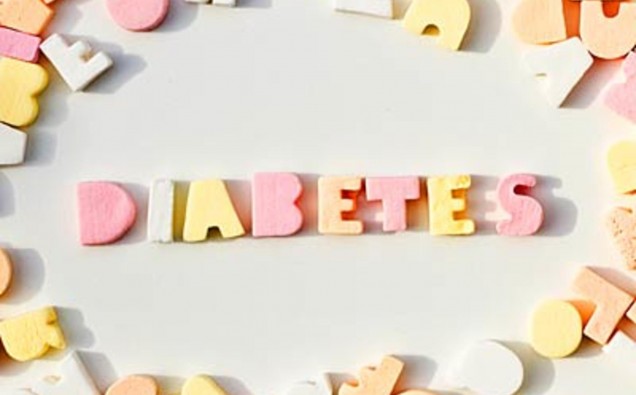Diabetes mellitus is often a misunderstood disease in the Asian community, with many people associating it simply with sugar consumption. Being Asian means that we have a far higher rate of diabetes, mainly Type2 diabetes, which affects the vast majority of diabetics. Globally, diabetes is the fifth leading cause of death. Fortunately, simple lifestyle changes can help prevent diabetes altogether and therefore also reduce the risk of many associated illnesses such as heart disease and stroke.
Furthermore, early diagnosis can help with controlling diabetes, thereby reducing its negative long term effects on your health and well-being. In this article, the first of a two, I will explain what diabetes is, what to look for and how to prevent it.
In the UK alone, there are 2.5 million people who have been diagnosed with diabetes, of which it is estimated that 90 per cent have Type 2 (explained below). Furthermore, there may be another half a million people in whom diabetes has not yet been diagnosed. Alarmingly, south Asian people who live in the UK are up to six times more likely to have diabetes than the white population. It is predicted that the number of people living with diabetes in the UK will increase by almost 50 per cent by 2025. Diabetes UK and the south Asian Health Foundation UK are doing some fantastic work to better understand the disease in our communities.
What is Type2 diabetes?
Diabetes mellitus is a disease in which your body fails to control sugar levels in the blood. In Type2 diabetes, this occurs because there is not enough insulin, a natural hormone which helps to carry sugar inside cells where it can be used. This is either due to there not being enough insulin produced, or “insulin resistance”, when the body cannot respond to the insulin properly. Many of the drug treatments work on increasing sensitivity to insulin or increasing insulin production, whilst lifestyle measures such as weight loss help to increase your body’s natural response to insulin. Most people need a combination of both, and some might also require insulin injections. Even when we are fasting, or starving, the body still produces insulin. It is therefore important to visit your GP at least two months beforehand to adjust your medication if you plan to fast during Ramadan.
What are the symptoms of diabetes?
Many people have vague symptoms for some time before they are diagnosed. Often, people may have no symptoms and may be diagnosed following a blood test for another reason. Four common symptoms are: thirst, passing urine a lot, tiredness and weight loss. Some people also suffer frequent infections such as thrush and boils or may notice blurred vision. You should visit your GP and request a simple blood test for diabetes should you be experiencing any of these symptoms.
Long term, untreated diabetes is associated with heart and circulation problems, strokes, visual problems, kidney problems, nerve damage and foot problems. Many of these complications can be avoided by preventing diabetes in the first place and if you have diabetes already, by losing weight and taking diabetes medication. It is also important to treat blood pressure and cholesterol carefully in diabetic patients to prevent complications.
Who gets Type2 diabetes?
It is important to look out for diabetes from the age of 25 years in Asian communities and also to be screened in pregnancy. It is also becoming more common in children, adolescents and young people of all ethnicities. Being overweight and having a family member with diabetes are also risk factors. You can find out your individual risk by visiting: http://riskscore.diabetes.org.uk/start
Prevention
Fortunately, in 4 out of 5 people, Type2 diabetes can be prevented or delayed by very simple and small changes with massive benefits for their health. These changes involve eating a healthy, balanced, diet, maintaining a healthy weight and getting exercise. You should also stop smoking and reduce your alcohol consumption.
The government is now rolling out the National Diabetes Prevention Programme in seven areas to begin with: Birmingham South and Central , Bradford City, Durham, Hereford, Medway, Salford and Southwark. The scheme will help identify people at high risk of developing diabetes and will also provide support with weight loss, exercise, cooking/ nutrition and peer support.
You can find more information on healthy eating here: https://diabetes.org.uk/upload/How%20we%20help/catalogue/DiabetsUK_SouthAsian_eng.pdf.
A healthy, balanced diet should include at least five pieces of fruit and vegetables. It should minimize fried foods such as bhajis and samosas- although it is fine to grill or bake these and you should use heart- healthy oils such as olive or rapeseed to cook. You should also include lean protein such as chicken and fish and starchy carbohydrates in the form of rice, including Basmati rice and chapattis. There is no need to buy diabetic foods or to eliminate sugar completely from your diet.
You should also try to have an active lifestyle- try walking as the days get brighter, alight from the bus a stop earlier- see where you can fit it into your routine. I would recommend aiming for half an hour a day of exercise, which gets you out of breath. Find something you enjoy and can manage easily, perhaps find some friends or a club to help you. Not only will it help with preventing diabetes, it may help to reduce your medication, with weight loss, lift your mood and keep your heart healthy!
In summary, diabetes is a growing problem in our community. Fortunately, exercise, a healthy weight and a healthy diet can go a long way to prevent it happening to us. In the next issue, I will discuss the diagnosis and treatment of diabetes in more detail.





















